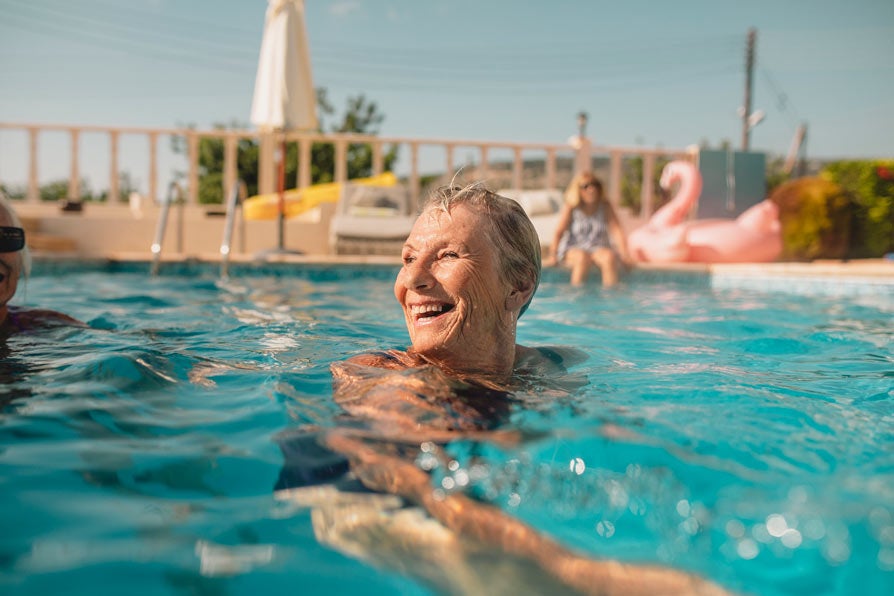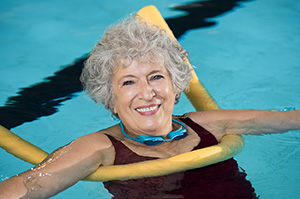Rheumatoid arthritis (RA) is an ongoing (chronic) disease. It is an autoimmune disease. This means your immune system attacks the lining of your joints causing pain, stiffness, tenderness and swelling. You can help control symptoms of RA with medicine, exercise, and a healthy lifestyle. It doesn't have to keep you from being active. Make sure to see your healthcare provider for scheduled checkups and blood tests. At some point, you may be referred to a rheumatologist. This is a doctor who specializes in arthritis and related diseases.
Make exercise part of your life
Gentle exercise can help lessen your pain. Here are some tips:
-
Choose exercises that improve joint motion and make your muscles stronger. Your healthcare provider may refer you to a physical therapist (PT). A PT can show you certain exercises that may help.
-
Most people should exercise for at least 30 minutes a day on most days of the week. This can be broken up into shorter periods during the day.
-
Try doing exercises in a warm pool. Try walking, or riding a bike. Look for exercise programs in your area for people with arthritis.
-
Make sure you warm up for 5 to 10 minutes each time you exercise. Stretching and flexibility exercises are often helpful.
-
Don’t push yourself too hard at first. Build up your exercise level over time.
-
If pain and stiffness increase, don't exercise as hard or as long.
Watch your weight
If you have excess weight, your weight-bearing joints are under extra pressure. This may make your symptoms worse. To reduce pain and stiffness, try losing some weight. These tips may help:
-
Start a weight-loss program with the help of your healthcare provider.
-
Ask your friends and family for support.
-
Join a weight-loss group.
Learn ways to help you cope
Having a long-term condition is stressful. It can be a challenge to deal with the emotions and symptoms such as chronic pain.
-
Work with your healthcare provider on ways to lessen pain. They may advise medicines, use of heat and cold, and other methods.
-
Learn ways to help you relax. It may not be easy, but it may help lessen stress, anxiety, and pain. Try simple deep-breathing exercises, meditation, or yoga.
-
Depression is common with long-term conditions. If you feel depressed, make sure you talk with your healthcare provider. Medicine and counseling can help.
Try to make your day easier
There are things you can do every day to protect your joints:
-
Learn to balance rest with activity. Even on days when you have few symptoms, rest is still important.
-
Ask friends and family members for help. Help with simple things can make a big difference for you. For example, you might ask someone to change a light bulb, or take out your weekly garbage.
-
Use assistive devices. These are special tools that reduce strain and protect joints. They include things such as:
-
Long-handled reachers or grabbers for reaching high and low
-
Jar openers, 2-handled cups, and button threaders—all of these devices help to protect your fingers, hands, and wrists
-
Large grips for pencils, pens, and kitchen and garden tools
-
Use mobility and other aids
People with arthritis often use mobility aids to help with walking. These can include canes or walkers. They may also use splints or braces to support joints. Talk with your healthcare provider or therapist about these aids. For example, you may find it helpful to:
-
Use a cane to ease knee or hip pain and help prevent falls
-
Use splints for your wrists or other joints
-
Wear a brace to support a weak knee joint
To learn more
For more information and support, visit the Arthritis Foundation at www.arthritis.org .
Featured in



